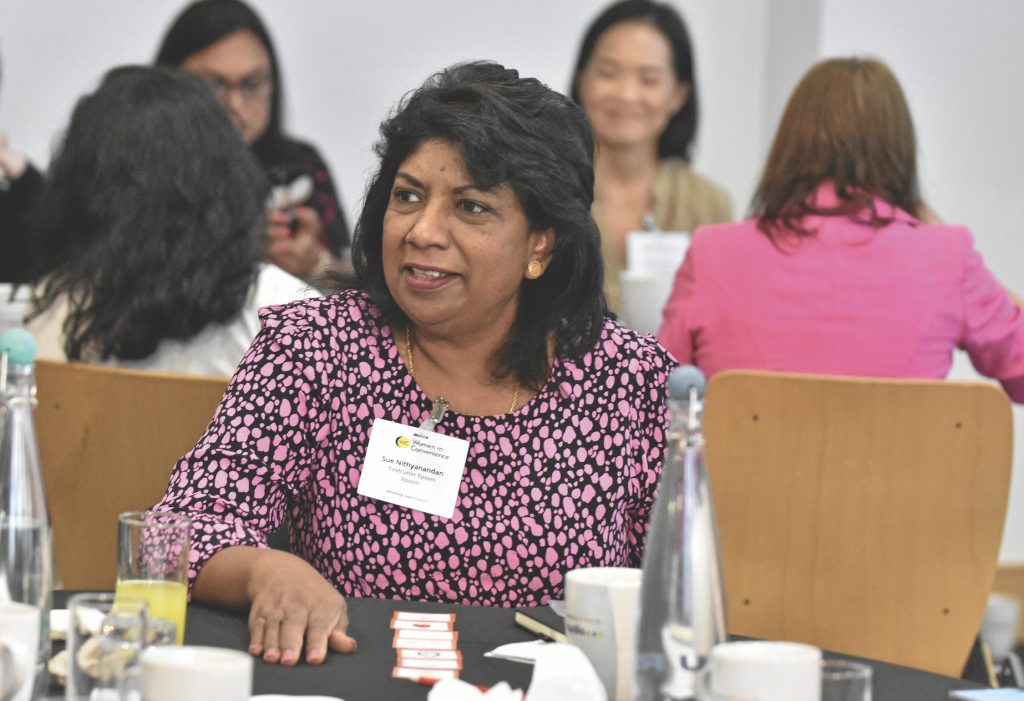Female convenience store owners and workers are demanding change from the government for improved access to childcare, and support for menopause-related illnesses. At present, no specific support is available for independent retailers to claim childcare, thus creating challenges in both retaining staff and fulfilling their own job roles to their maximum ability.
Newtrade Media’s Women in Convenience initiative launched last year, with the aim to better connect, support and empower females working in the sector.
Childcare and fertility
Sue Nithyanandan, owner of Costcutter Epsom in Surrey, told Better Retailing she struggles to work around the availability of her female staff who have young children.
“[These women] like to come to work. Childcare is definitely holding them up, and there just isn’t enough support there currently,” she said.

Last year, a survey by the Union of Shop, Distributive, and Allied Workers (Usdaw) of 7,755 retailers found that women were twice as likely to be employed on a contract of less than 15 hours a week, and 17% of its members in retail were said to be on those types of contracts. As a result, the trade union is calling for the current childcare system to be “overhauled” for women in retail, so it’s more affordable and accessible to have any kind of formal childcare, and for more universal childcare provisions.
A spokesperson explained: “Reasons for this include women shouldering the majority of childcare. The flexibility of childcare [is also important], working in retail can involve unsociable hours, so women have to rely on informal childcare such as asking family for help, then can’t do as many hours as they’d like.”
‘Not fair at all’
Chloe-Taylor Green, of Spar Western Downs in Staffordshire, had a baby in September 2022. She told Better Retailing payments from the government needed to be “fairer” in order to give women who’ve had children equal opportunity when returning to work.
“At the moment, a part-time worker gets paid the same maternity pay as a full-time worker,” she said. “I just don’t think that’s fair at all.”
The Co-operative Group are leading the way in recognising the need for women to be eligible for specific schemes to ensure they aren’t hindered. The government allows working parents to benefit from income tax and national insurance exemptions on up to £243 per month when used to pay for qualifying childcare. The Co-op offers childcare vouchers, as an employer-supported benefit, which helps each parent in the scheme to save up to £933 per annum.
Going one step further, two years ago the firm announced it would be offering paid leave to any of its staff undergoing fertility treatment. Co-op’s chief executive, Shirine Khoury-Haq, revealed she had gone through fertility treatment herself and as a result, wanted to provide a supportive environment for her employees. The policy covers time off for the purpose of receiving and recovering from the physical and psychological effects of fertility treatment and to attend or accompany a partner/surrogate to appointments specifically connected to the process.
Women shouldn’t be penalised
Multiple female retailers told Better Retailing that although policies like this are needed, owning an independent business means its harder to implement something similar, and that’s why government help is “vital”.
Taylor-Green added: “I returned to work four weeks after having my baby because we are entitled to basic pay. I capped my holiday and took my keeping in-touch days. It’s not financially viable as it stands, and women shouldn’t be forced into making decisions like this.
“It’s all well and good that big businesses can afford to bridge that gap, but if you’re working for an independent retailer, you’re expecting someone to find money from their bottom line, while they still have to cover you. Most women who take time out of their careers to have a baby end up having to start back at the bottom to try to gain their way back to where they were. I don’t see why women should be penalised for something that most of them are going to do.”
Catherine Shuttleworth, CEO of retail research consultancy Savvy, agreed that due to independent businesses commonly being family-operated, women are expected to divide their time “differently to other family members”.
“Giving up time for children in the independent sector is probably more difficult for women than men,” she said.
Menopause
Elsewhere, female retailers are also calling for “any support at all” to help them manage the menopause in the workplace, and recognition for the challenges it presents. The Chartered Institute of Personnel and Development (CIPD) commissioned a survey in October 2023 of over 2,000 women, aged 40 to 60, who are currently employed in the UK and could be experiencing menopause transition.
Two thirds (67%) of women said their menopausal symptoms have had a mostly negative effect on them at work; more than half (53%) were able to think of a time when they were unable to go into work due to their menopause symptoms. More concerningly, despite respondents saying flexible working and ability to control temperature are the most helpful measures, only 26% and 25% say their organisation offers these.
Anita Nye, owner of Premier Eldred Drive Store in Orpington, Kent, told Better Retailing: “There is a lack of understanding about a woman’s body in the industry, and awareness and education around it needs to be ramped up. The subject is taboo, and if you can’t physically work, there isn’t any kind of benefit you can claim.”
Earlier this year, the Labour Party pledged to bring in a requirement for large firms to publish and implement a menopause action plan, which could offer paid time-off working environments with temperature controlled area. However, the same recognition hasn’t been seen from the Conversative Party, and retailers said they are “disappointed” at the lack of recognition, specifically to small business owners.
In 2022, Usdaw partnered with Tesco to launch a guide across the business to help more women access menopause support in the workplace. National officer Daniel Adams said: “Working in customer facing roles, working nights, fluctuating shift patterns and a lack of awareness can aggravate menopause symptoms and make it more difficult for staff to raise the issue and ask for workplace adjustments.”
If you would like to find out more about Women in Convenience and how you can get involved, please email marketing@newtrade.co.uk or contact Kate Daw on 07886 784465





Comments
This article doesn't have any comments yet, be the first!